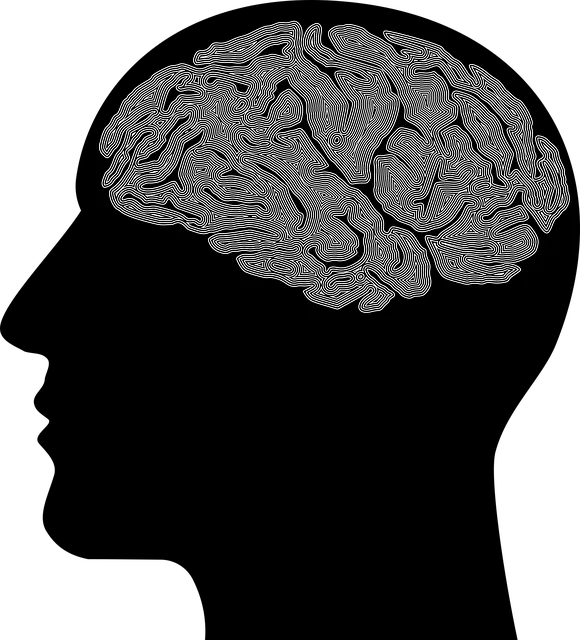Kaiser's presence in Northglenn offers valuable insights into mental health data through its diverse service portfolio and patient-centric approach. By analyzing demographics, diagnoses, treatment outcomes, and utilization rates, professionals can identify community needs, track progress, and make informed decisions to enhance mental well-being. This data-driven strategy guides targeted interventions, such as Resilience Building and Empathy Strategies, addressing systemic issues and improving individual outcomes. Kaiser's commitment to both clinical care and community engagement ensures a tailored and accessible mental health service offering in Northglenn, while ethical practices prioritize patient confidentiality and privacy throughout the process.
Mental health data analysis is a powerful tool for understanding and improving individual and community well-being. This article explores various facets of this process, from collecting and understanding mental health data through diverse sources, to analyzing trends and patterns that inform strategies. We delve into the practical implications of interpretation, including Kaiser’s role in Northglenn, and consider ethical dimensions crucial for responsible mental health data management. Discover how these insights shape services and promote resilience within communities.
Key keywords: mental health data analysis, Kaiser mental health services Northglenn, trends and patterns, individual and community well-being, ethical considerations
- Understanding Mental Health Data: Collection and Sources
- The Role of Analysis in Uncovering Trends and Patterns
- Interpreting Data: Implications for Individual and Community Well-being
- Kaiser's Mental Health Services in Northglenn: An Overview
- Ethical Considerations in Mental Health Data Management
Understanding Mental Health Data: Collection and Sources

Understanding Mental Health Data is a crucial first step for any organization aiming to improve services, particularly in areas like Northglenn where access to mental health care is vital. Kaiser, known for its comprehensive healthcare offerings, includes mental health services in Northglenn, providing a rich source of data. This data encompasses various aspects such as patient demographics, diagnostic information, treatment outcomes, and utilization rates. By collecting and analyzing these insights, mental health professionals can identify trends, track progress over time, and make informed decisions to enhance patient care.
The sources of mental health data are diverse. They include electronic health records (EHRs), surveys, research studies, and community-based programs like the Mental Health Education Programs Design and Social Skills Training initiatives. Conflict Resolution Techniques can also be incorporated into data collection methods to gain a more nuanced understanding of patient experiences and preferences. These multiple streams of data enable a holistic view, allowing for targeted interventions and tailored support, ultimately contributing to improved mental health outcomes in communities like Northglenn.
The Role of Analysis in Uncovering Trends and Patterns

Mental health data analysis plays a pivotal role in uncovering trends and patterns within populations, which is crucial for understanding and addressing community well-being, including those seeking services at Kaiser Northglenn. Through rigorous statistical methods, researchers can identify prevalent mental health issues, their co-occurrences, and risk factors. By analyzing large datasets, they can reveal hidden correlations, such as the link between specific socio-economic factors and anxiety disorders or the impact of seasonal changes on mood management.
This process not only helps in recognizing emerging trends but also aids in evaluating the effectiveness of interventions and treatments. For instance, tracking emotional well-being promotion techniques over time can highlight successful strategies for improving emotional regulation among different demographics. By mining data, professionals at Kaiser Northglenn can make informed decisions, adapt services, and develop targeted programs to better support the mental health needs of their community, ensuring a more tailored and accessible approach to care.
Interpreting Data: Implications for Individual and Community Well-being

Mental health data analysis offers a powerful tool for understanding community well-being and guiding interventions. When interpreting data from Kaiser’s mental health services in Northglenn or any other provider, it’s crucial to consider both individual and collective impacts. Patterns emerging from the data can reveal not just the prevalence of specific mental health conditions but also systemic issues affecting the overall resilience of the community. For instance, high rates of anxiety disorders might signal a need for better stress management programs, while recurring themes of depression could point to inadequate support systems or lack of emotional intelligence training in schools and workplaces.
This analysis then translates into actionable strategies such as Resilience Building initiatives, Empathy Building Strategies, and enhancing Emotional Intelligence. By understanding the unique mental health landscape of Northglenn through data, community leaders, healthcare providers, and individuals can collaborate more effectively to foster a healthier, more supportive environment. This holistic approach ensures that interventions are not just reactive but proactive in nature, ultimately contributing to improved individual outcomes and collective mental well-being.
Kaiser's Mental Health Services in Northglenn: An Overview

Kaiser’s Mental Health Services in Northglenn provide a comprehensive range of support for individuals seeking emotional healing and mental wellness. Known for its innovative approach, Kaiser offers a diverse array of services tailored to meet the unique needs of the community. From individual therapy sessions to group support programs, their experts guide people through effective mental health management techniques. The organization also emphasizes self-care through Mental Wellness Journaling Exercises, encouraging personal reflection and growth.
In addition to clinical care, Kaiser Northglenn actively engages in Community Outreach Program Implementation, aiming to raise awareness and reduce the stigma surrounding mental health. These initiatives foster a supportive environment where individuals can access resources and find guidance. With a focus on both professional treatment and community engagement, Kaiser demonstrates its commitment to enhancing emotional healing processes within Northglenn.
Ethical Considerations in Mental Health Data Management

In the realm of mental health data analysis, ethical considerations are paramount. As organizations like Kaiser offer comprehensive mental health services in Northglenn and beyond, it’s crucial to navigate sensitive data with utmost care. The collection, storage, and interpretation of individual experiences and conditions demand strict confidentiality and privacy protocols to protect patients’ identities and prevent potential stigma or discrimination.
Furthermore, the development of Public Awareness Campaigns, Emotional Well-being Promotion Techniques, and Mental Health Education Programs Design should be guided by ethical principles. This includes ensuring informed consent, maintaining data security, and using findings to enhance services rather than stigmatize specific groups. Adhering to these standards fosters trust, promotes healing, and contributes to a more inclusive and supportive community for mental health support.
Mental health data analysis plays a pivotal role in understanding and addressing community well-being. By examining trends and patterns, we can identify areas of need and tailor interventions effectively. The case study of Kaiser’s Mental Health Services in Northglenn demonstrates how organizations can make a significant impact by leveraging data to deliver targeted support. However, ethical considerations are paramount to ensure privacy, consent, and the responsible use of sensitive information. As we navigate the digital landscape, continuous analysis and interpretation of mental health data will be crucial for fostering resilient communities and enhancing individual well-being, with Kaiser’s services in Northglenn serving as a promising model for future practices.






